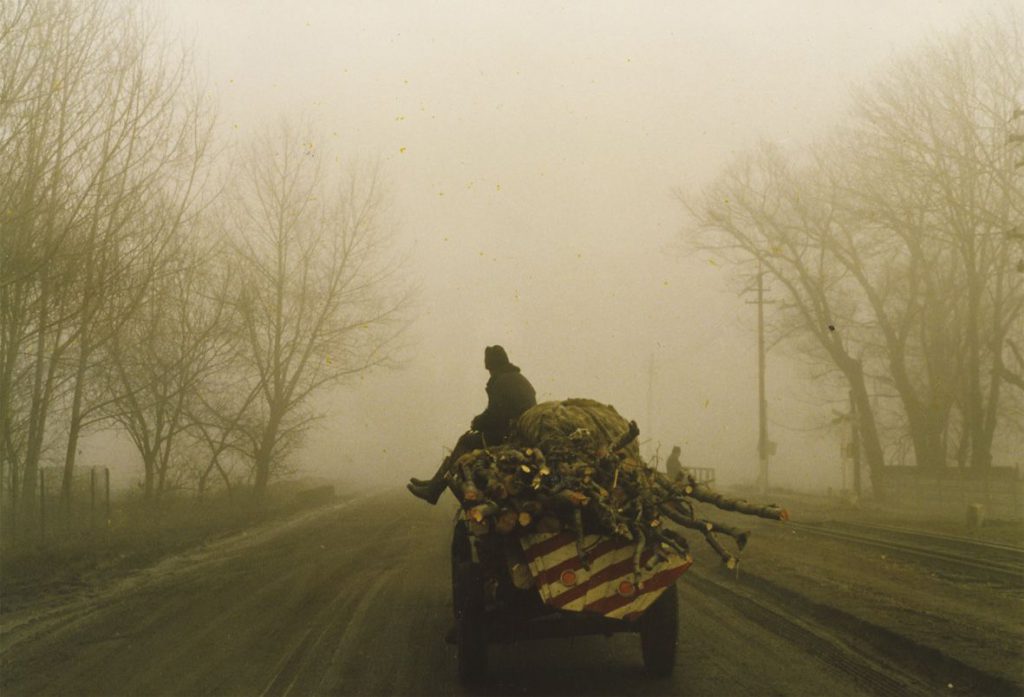Kommenden Dienstag (11. April) ist die Eröffnung der diesjährigen Balkan Film Week im UT Connewitz in Leipzig. Im Anschluss an den Eröffnungsfilm Das schönste Land der Welt spricht Programmkuratorin Marija Katalinić mit Regisseur Želimir Žilnik über den Film und seine Arbeitsweise. Das Gespräch findet auf Englisch statt. Das komplette Programm mit Infos zu allen Filmen, findet ihr hier. Eintritt ist frei!
Exposé – Programmkuratorin Marija Katalinić
Emigration and immigration imply the gestures of relocation. These acts of movement are about personal politics and the reasons that (literally and symbolically) move us; pains, desires, aspirations, and hopes that manage to transform one ordinary life into a new one. To move is never a simple act. Change implies leaving people and matters behind and shedding one’s familiarity for what is to come. Emigration and immigration require courage to confront what is unknown, for all that is new is saturated with connotations of unsettledness. Conditions of survival mark the histories that these movements create. Bodies that move across borders bear in them the potential to create and shape new (hi)stories by layering old and new aspects of identity, belonging, and culture. However, newly imagined realities that are on the move are as fragile as the bodies that articulate these hopes. Their emerging corporeality, the influx of agencies into spaces from which they were previously absent, often provoke feelings of scarcity and fear. Nevertheless, it is worth remembering that migrations are a historical constant that persists even in the face of hard obstacles such as wires, rivers, and mountains, or soft ones, such as bureaucracy, money, and language. One of those symbolical barriers is the process of forgetting. This seems to be a political methodology for a certain type of politicized history: forgetting about all the previous psycho-geographies by those who searched for a better life for themselves and their families. How and why does one become included, or expelled, within a society, a group, or a state? Maybe we should remind ourselves of ‚the ethics of hospitality‘ that J. Derrida articulated in his essay “Cosmopolitanism[1]”. Culture is borrowed, edited, appropriated, and adjusted by and to the needs of those who shape and live it. Raymond Williams famously described culture as one of the more complex words to define, precisely because of the inherited tension between those who think they own culture. Therefore, processes of migration are a testament to the layers that create culture, while at the same time generating contention in the public discourse. As such, emigration and immigration need to be welcomed as they stand for the history of human perseverance.
Previously, Balkan Film Week presented films that discussed questions of diversity, belonging, borders, origins, family, and memory. Emigration and immigration feed into these narratives as the region’s histories have been marked for centuries by movements between borders; it is an inherent part of its cultural code. This year´s Balkan Film Week programme welcomes Austria into its collective fold: as its neighbour, friend, and partaker of its shared history. The gaze is still set on the Southeastern space, while the perspective remains transnational. The selected films aim to depict methodologies used to ‘cross over’ borders; monetary endeavours (‘Cash & Marry’), failed attempts to become accepted (‘Exile’, ‘The Most Beautiful Country in the World’), lost familiar ordinaries (‘Acasă, My Home’), deliberate collective acts of forgetting (‘Verschwinden/Izginjanje’), or the moving forces that seek to recollect and uphold the memories of those who migrated before us (´The Paper Bridge´). ‘Bosnian Broadway’ shows how the possibility for emigration is being formed in the first place, and how its imagined reality can become almost tangible, yet remain elusive. On the other hand, there are those who do manage to leave, yet keep on returning to (for) those who remained behind. Led by love, these travellers move between time and place, striving to gather that and those who hold them safe in their own personal space, such as the film ´Dida´ showcases.
The question of migration is the question of responsibility towards one’s own life while acknowledging the historical narrative that created the precarious conditions of survival in the first place. Ultimately, the politics of migration stem from the questions of power and inequality. They remind us of the past, and of humanity’s ability to survive; they evoke what strives to be forgotten. When Derrida suggests we ‘transform and reform the modalities of membership[2]’, he asks us to re-examine the privileged conditions of those who do not need to move. In this year’s Balkan Film Week, we will encounter heroes attempting to improve their circumstances, walking towards unknown terrains, yet guided by faith in that what is to come.
[1] Derrida, Jacques, “On Cosmopolitanism and Forgiveness”, Routledge, London and New York, 2005.
[2] Derrida, Jacques, “On Cosmopolitanism and Forgiveness”, Routledge, London and New York, 2005; p. 4.
